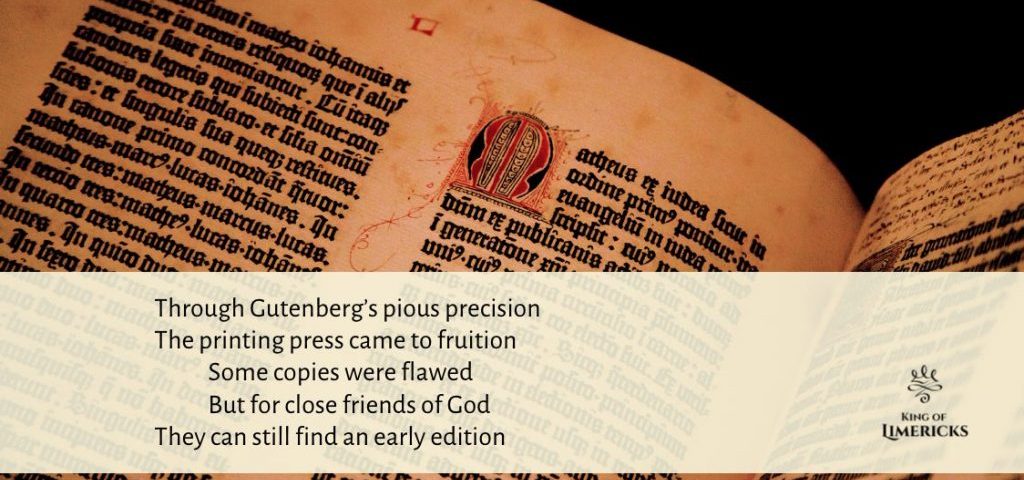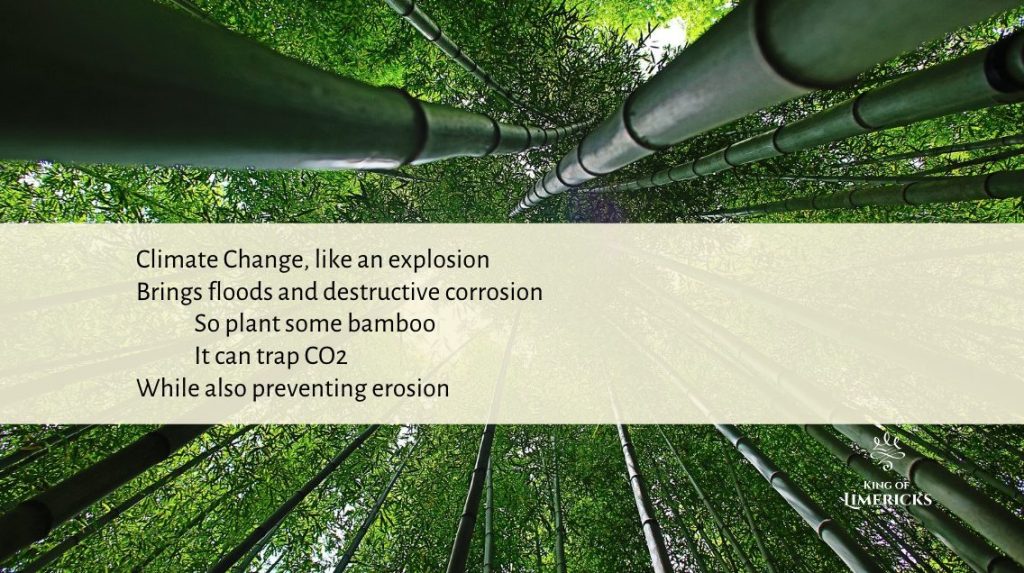
Limericks about Bamboo: Sustaining Poetry
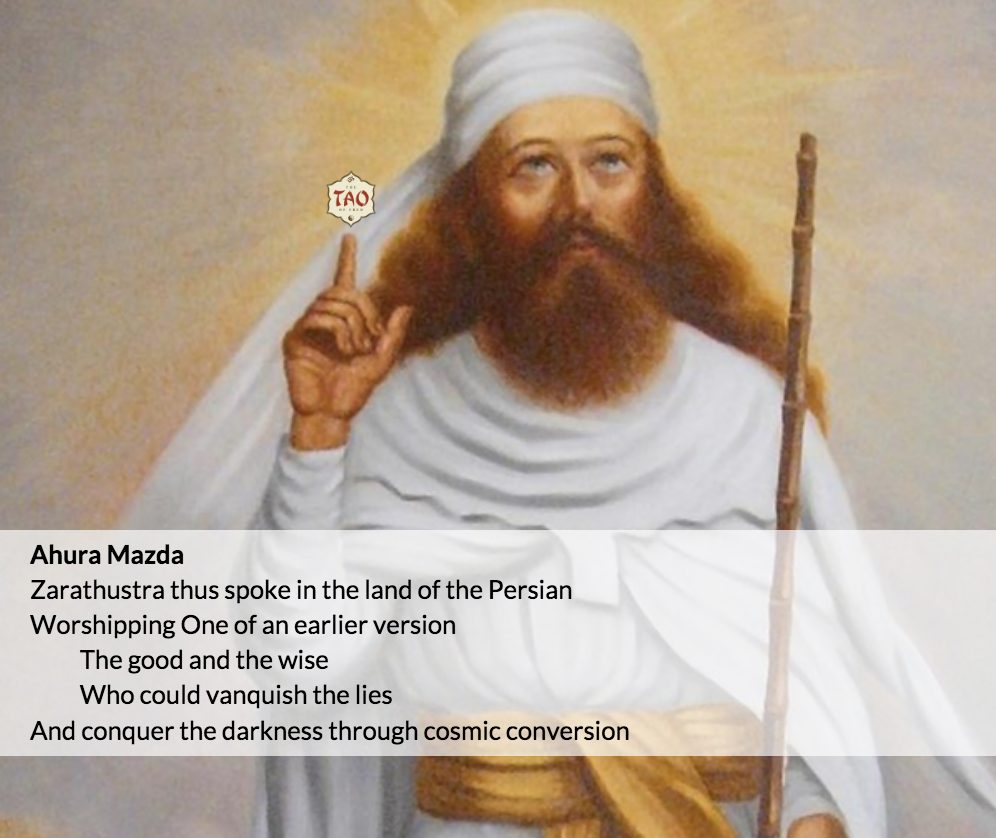
Limericks about Near Eastern Mythology
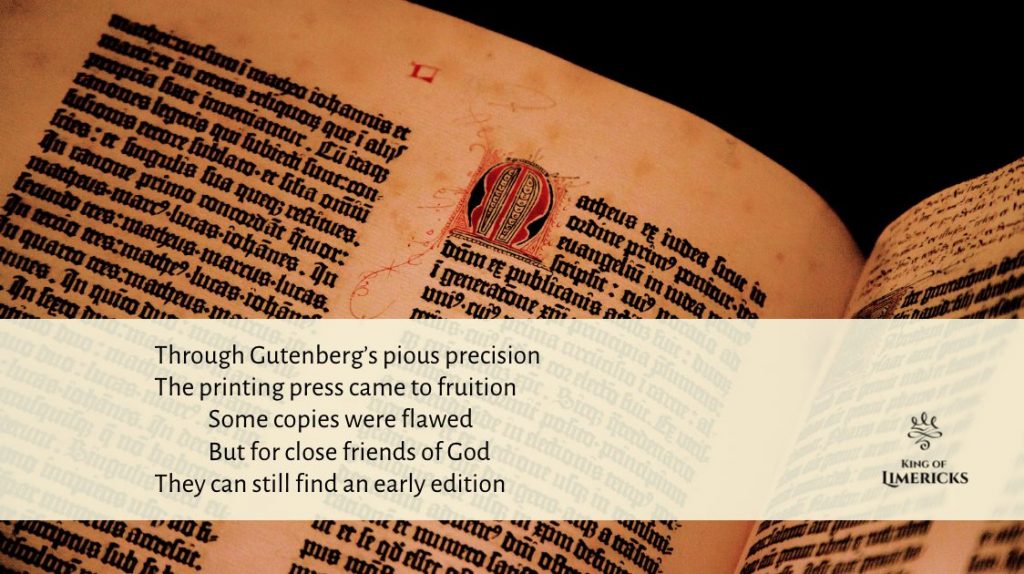
There’s a popular urban legend that says the Germans have a word for everything. It’s a cute idea. Indeed, the German language has a whole lot of words, and some of them are frightfully long. But as any German will quickly tell you, it’s not the size of your words that truly matters; it’s the artistry with which you use them to convey a deep and meaningful concept.
The following collection of limericks about Germany are not written in German, but they do aim to express and explain some uniquely German notions. From the Gutenberg Bible to the Third Reich to the Post-War Era and Reunification, Germany and Germans have been responsible for an astonishing range of concepts and ideas. So let’s try and sum them up with a few limericks.
German Inspiration
This month I’m traveling to Berlin to do a little sightseeing and to learn a little more about the COVID restrictions at different airports and in different countries. It should be fascinating. I’m especially eager to visit some of the city’s more remarkable museums. Among Berlin’s formidable collections, both natural and manmade, are some original tablets from the Epic of Gilgamesh, a few remaining sections of the Berlin Wall, and one of Europe’s finest botanical gardens.
Less famous, but equally intriguing, is a particular library near the city center. The special site has enough shelf space for 20,000 books, but it’s completely empty, as it’s intended to be a memorial for the massive book burning that took place there in May 1933. The Empty Library they call it.
It’s a highly conceptual monument that could only happen in Germany. And it reminds me of another conceptual edifice in Bonn, the former capital of West Germany. Constructed after Germany’s defeat in WWII, the walls of the Bundeshaus (the capitol building) are all glass and see-through. The clear architecture was meant to symbolize the newly-formed nation’s commitment to “transparency” at the highest levels of government.
There’s a library based in Berlin
Not one single volume within
It’s only for learning
How books were once burning
And much to the reader’s chagrin
Herr Honecker built a partition
That led to a war of attrition
Berliners, extreme
To flee the regime
Dug tunnels from basement to kitchen
Post war when the reich had dissolved
The West Germans glumly resolved
For a system transparent
The need was apparent
To prove that their state had evolved
German History
When you think of German history, it’s hard not to hear the phrase “checkered past” echoing in your mind. Checkpoint Charlie, Auschwitz-Birkenau, the lowlights can take you pretty low. Although it’s absolutely essential that we remember them.
But Germans were also responsible for some of Western Civilization’s greatest triumphs, in art, science, literature, and philosophy. Still, many Americans just think of them as the gloomy race who dress in goth and lack a sense of humor.
There’s a camp to the south of Berlin
The site of unspeakable sin
Its existence is proof
Of the horrible truth:
It can easily happen again
Through Gutenberg’s pious precision
The printing press came to fruition
Some copies were flawed
But for close friends of God
They can still find an early edition
Though Frankfurt’s got banks for your money
Don’t go if you want somewhere sunny
The forecast is cloudy
And ere you say “howdy”
Please know that they’re not all that funny
It’s a land of more shepherds than setters
Composers and great men of letters
Of pretzels and lager
And champion soccer
And very black turtleneck sweaters
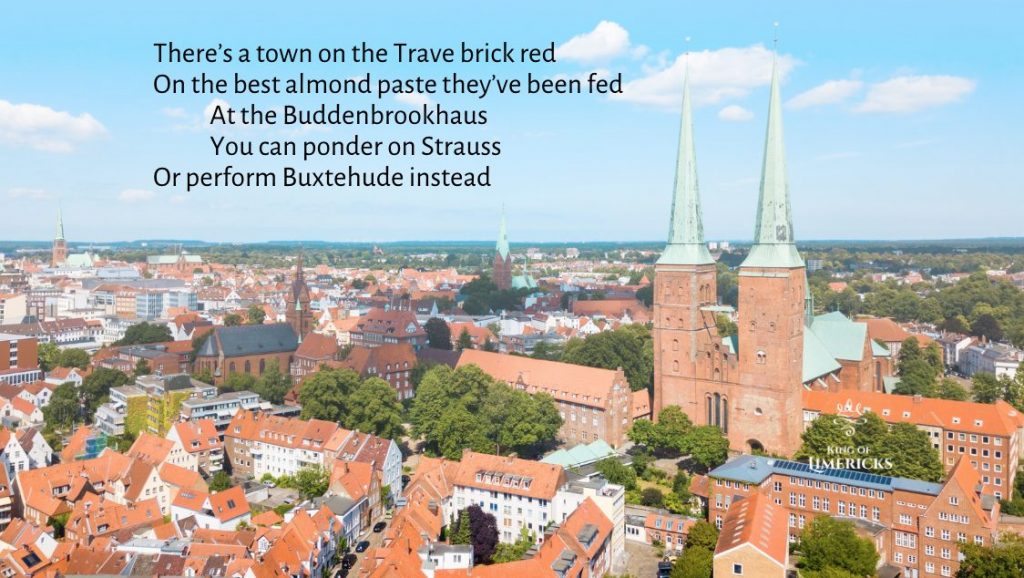
From Berlin to Lübeck
Most visits to Germany begin in Berlin, the nation’s capital, and one of the most vibrant cities in Europe, if not the world. But when you’re ready for some fairy-tale-like serenity, head up to Lübeck, the so-called Jewel of the Baltic. It’s a picture-perfect city, centered on an island in the River Trave (pronounced TRAH-vuh), filled with churches and chocolate and cobblestone alleys.
There’s a town on the Trave brick red
On the best almond paste they’ve been fed
At the Buddenbrookhaus
You can ponder on Strauss
Or perform Buxtehude instead
The city of Lübeck is the home of Niederegger and Mest, two of the best marzipan (almond paste) producers in Germany (and the world). It’s also the birthplace of the extraordinary author Thomas Mann, born and raised at the Buddenbrookhaus. And lovers of baroque organ music might be familiar with Buxtehude (Būksta-HOO-duh). For the connection between the Buddenbrookhaus and Richard Strauss, you can refer to Mann’s later novel, Doctor Faustus.
Lübeck also happens to be the town where I first met my wife, 20 years ago last month. And if you make it there, be sure to stay at the Rucksack Hotel. Ask for Piia, and tell her Fred sent you!
Further Reading
If you enjoyed these Teutonic and thought-provoking limericks, please consider purchasing one of my books or subscribing to the blog. You might also want to check out some of these popular articles:
- Custom Limericks and Poetry Services
- Profound limericks about German philosophy
- Limericks that bring Goethe to life
- The History of Limericks from Shakespeare to Spirit Rock

